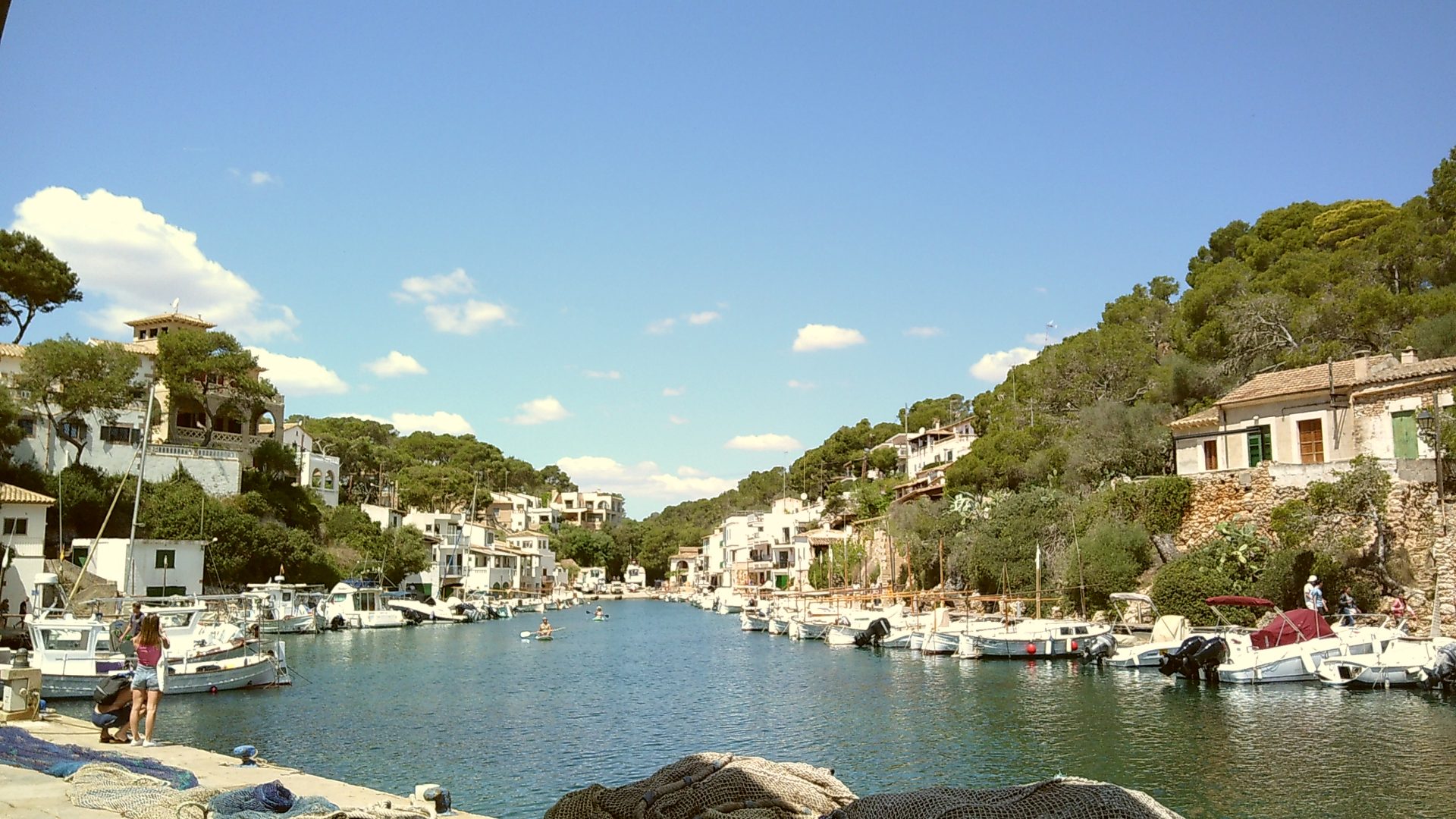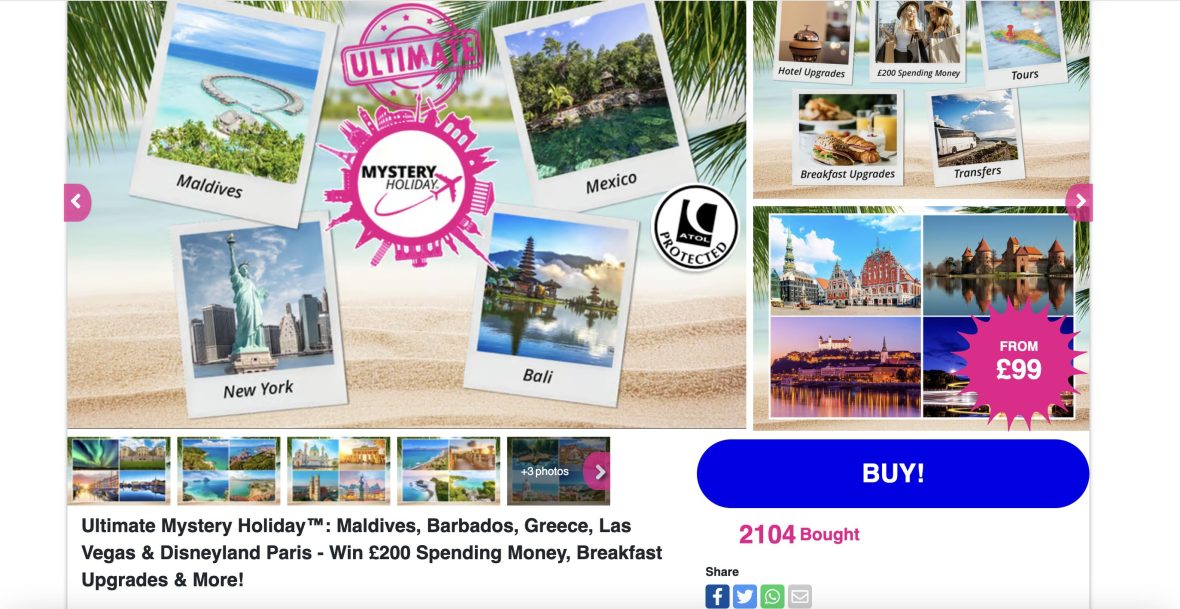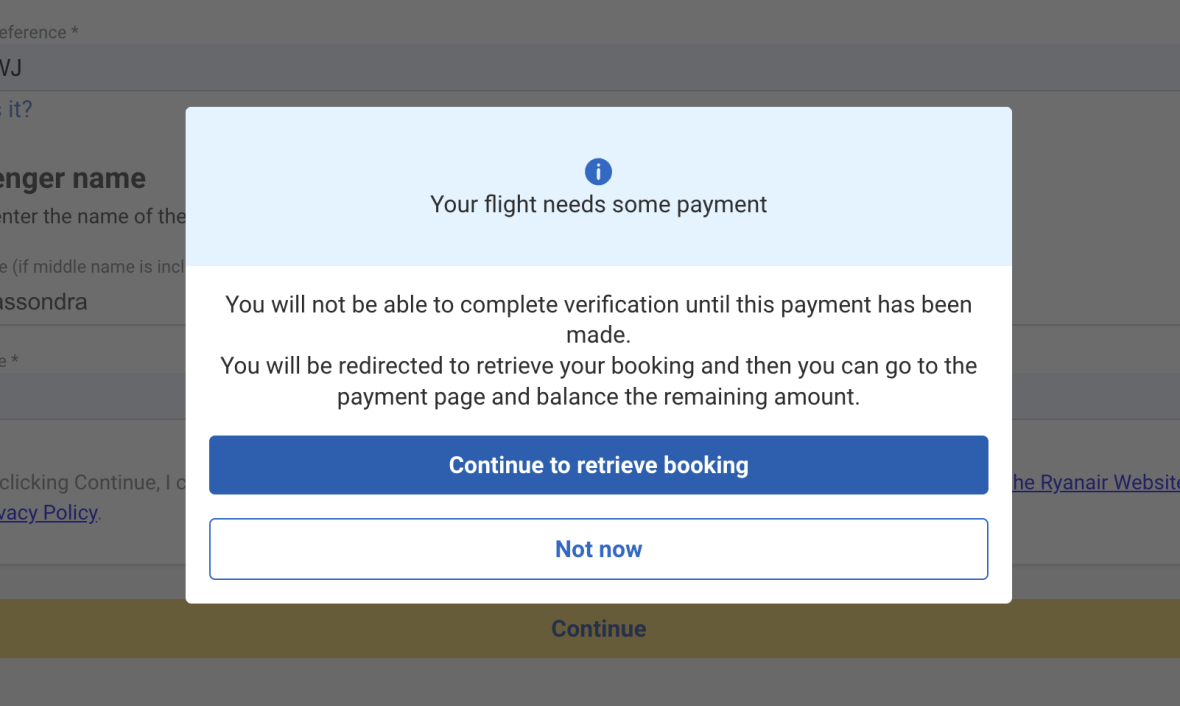
If what you want is a true misadventure—a trip guaranteed to be rife with mishaps sure to entertain the masses—it can be yours for just £99. (Extra fees not included. Many, many terms and conditions apply).


If what you want is a true misadventure—a trip guaranteed to be rife with mishaps sure to entertain the masses—it can be yours for just £99. (Extra fees not included. Many, many terms and conditions apply).
This is not a happy story, but it has a happy ending.
A few months ago, I came across a Wowcher deal that seemed far too good to be true: For just GBP£99 (asterisk), I could get a “mystery” seven-day trip from London to Mexico (asterisk asterisk). I read through the full terms and conditions at least twice and concluded that I almost certainly would not win a trip to Mexico, but I might still end up with a lovely, very budget-friendly weekend in a European city I otherwise might not plan to visit.
I have always wanted to do a mystery trip like this, ever since reading the old ‘Spin the Globe’ essays in Afar, where the magazine would send a famous writer on assignment to a destination revealed only the day before. Sure, a £99 weekend trip would not be as glitzy as spending a week in Switzerland with a seemingly unlimited expense budget. But it would be a good story, right? And what did I have to lose, other than £99?

I bought two vouchers, persuaded my friend to come away with me to this unknown destination, and we crossed our fingers for something good.
“Bologna!” the Super Escapes Travel website said when we redeemed our coupon codes. Neither impressed nor disappointed, we plumbed the depths of our collective knowledge for some exciting reference to this Italian city we had not visited. Nada.
The first time I called the company, they asked me for my voucher number. Then they asked me what destination I’d been given. “Bologna,” I told them before kicking myself for not trying my luck by saying “Mexico.”
The next step was for us to contact Super Escapes Travel to plan our trip. I had thought that the trip would be booked behind-the-scenes and we would basically trade £198 in total for some random budget flight tickets and a cheap hotel. Not so.
Over the next month, I called—or was called by—the travel company at least 12 different times, not counting calls I missed, which may bring the total to over two dozen. I am not sure how they made money on this transaction.
The first time I called the company, they asked me for my voucher number. Then they asked me what destination I’d been given. “Bologna,” I told them before kicking myself for not trying my luck by saying “Mexico.”
“Hmm,” they said, after a moment. “I’m not seeing very many cheap flight options for Bologna. How about Milan? Would you like to go to Milan? I also have Spain, and Portugal.”
I booked this trip to avoid having to make any decisions. Now the power was back in my hands, I needed to consult my friend. So I hung up and we called back a couple of days later.
It felt like a tennis match: The agent would propose an absurd set of flights, like flying out at 7am from an airport two hours from my house that can’t be reached by public transportation at the hour I’d have to arrive to get through security. Then we would reject it, and she would try again. Finally we settled on a reasonable schedule, and then she upsold us on an extra night for an extra £40 each. Then we had to revisit the flight schedule again.
It took almost 90 minutes of back-and-forth to book the trip, and we finally landed on Mallorca, Spain.
“That was stressful,” my friend said afterwards. “I need a holiday.”
Of course, the budget-friendly hotel the agency booked was an hour away from the airport, and public transit wasn’t a viable option to get there. So now we were out £198 for the vouchers, £80 for an extra night, and £100 for a rental car. And unless we were going to bring our own food and plant ourselves permanently on the beach, we were going to need to spend money when we got there, too.
“This is a very special price,” the travel agent said on the phone. “The hotel includes breakfast!”
The real excitement didn’t start until the morning of departure. In order to release our Ryanair tickets, the company asked me to fill out a form on the airline’s website to verify my information. It took several phone calls and emails to do this, as it turned out the company had made the reservation not with my email address but with somebody else’s, because of course.
We checked in to discover tourist taxes were not included in the cost of the holiday. I paid them (USD$16 total), and we went up to our room, where we discovered we had no electricity. “Of course we don’t,” we laughed. I started to wonder if we would be disappointed if anything happened to go right.
But when I finally got into the website, I found a new surprise: A £200 fee required before I could get my boarding pass. Nearly a dozen calls and emails later, I learned that this was not a mistake, but a demand for ransom, an old business trick as retribution for a chargeback I requested through my credit card company after an abysmal experience in 2022. I won’t bore you with the details, but I was justified in seeking compensation.
“I am not interested in paying this fee,” I said to the customer service agent, 20 minutes before I was meant to head to the airport. She put me on hold again. Eventually, we agreed to meet somewhere in the middle, and my hostage holiday was released.
I had thought the £99 price tag was too good to be true, but I didn’t expect it to be this far off.

Eventually, we made it to Palma. We picked up an adorable Fiat convertible rental car, drove over an hour to our hotel, and checked in to discover tourist taxes were not included in the cost of the holiday. I paid them (USD$16 total), and we went up to our room, where we discovered we had no electricity.
“Of course we don’t,” we laughed. I started to wonder if we would be disappointed if anything happened to go right.
But of course, Mallorca is famous for a reason. Its beaches are stunning and the ocean is incomprehensibly blue. Even better, our hotel was in what appeared to be a part of the island commandeered almost exclusively by German tourists.
Almost everywhere we went, menus and other communications were offered in only Spanish and German, which struck us—a Brit and an American—as novel, making us feel like outsider tourists in the best of ways. It’s nice, sometimes, to go away and feel very far indeed from everyone who is familiar to you.
We had perfect weather and drove with the top down all over the island. We drank fresh orange juice squeezed right in front of us, and we ate pizza and drank smoothies and sangria on the beach. We visited a medieval fortress and drove along windy mountain roads with more cyclists than cars. It was more than I could have asked for, after the way it all seemed to be heading.
But the real game-changer was an artsy town called Deía, where stone houses jut out of the landscape as if they were always meant to be there.
“Oh my God, it’s exactly like giving birth,” my friend, who has never given birth, said about our logistical nightmares as we wandered the town’s main street in search of fresh orange juice. “The baby was worth it. I’ve fallen in love with it.”
“You want to… do this again…?” I asked.
“Nope!” she laughed.
***
Adventure.com strives to be a low-emissions publication, and we are working to reduce our carbon emissions where possible. Emissions generated by the movements of our staff and contributors are carbon offset through our parent company, Intrepid. You can visit our sustainability page and read our Contributor Impact Guidelines for more information. While we take our commitment to people and planet seriously, we acknowledge that we still have plenty of work to do, and we welcome all feedback and suggestions from our readers. You can contact us anytime at hello@adventure.com. Please allow up to one week for a response.

Kassondra Cloos is a travel journalist from Rhode Island living in London, and Adventure.com's news and gear writer. Her work focuses on slow travel, urban outdoor spaces and human-powered adventure. She has written about kayaking across Scotland, dog sledding in Sweden and road tripping around Mexico. Her latest work appears in The Guardian, Backpacker and Outside, and she is currently section-hiking the 2,795-mile England Coast Path.




Can't find what you're looking for? Try using these tags: